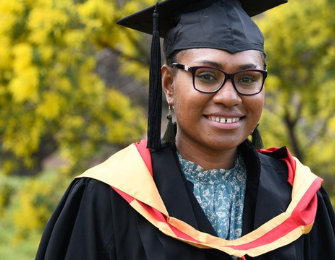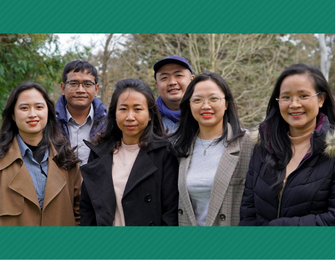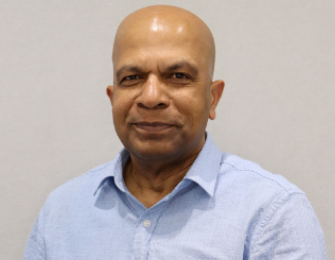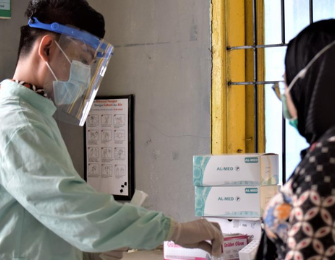
What is your new role and why did you choose to be involved?
My new role is working part time as a project officer, with the Pacific Paravet Training Project. I chose to be in this role because coming from Papua New Guinea where there is a current shortage of veterinarians, I recognise the role para-veterinarians and animal health officers play in delivering animal health services in communities, especially in terms of biosecurity and livestock disease and production.
My honours research at Charles Sturt University was focused on documenting the veterinary services in PNG, and the research indicated that the only training para-veterinarians have is on-the-job, and the Pacific Paravet Training Project aims to support sustainable capacity building of para-veterinarians to a globally acceptable standard, thus resulting in the increased standards of animal health services.
Capacity building is an important aspect in the delivery of veterinary services and the goal of the project is to support sustainable capacity building for the training of national paravets to internationally acceptable animal health standards.
Para-veterinarians provide a majority of animal health services and require consistent training in disease detection and surveillance, animal health diagnostics, antimicrobial stewardship and food safety which are all important in maintaining both animal and public health. Hopefully through the training para-veterinarians will have the ability to provide quality animal health services and, as such, improve the standards of animal health in PNG and the Pacific region.
I will be the first woman from my country to graduate and work as a veterinarian and my study was supported by DFAT through the Australian Awards Scholarship. We need to make veterinary science a priority and support more women and men to study Veterinary Science through more scholarship opportunities. By financially supporting projects like the Pacific Paravet Project, it also contributes to supporting accessible and sustainable training for more women and men.
We need consistent training of our animal health and para-veterinarians and other staff that all contribute to animal health services. In addition to providing training, we need to be able to create employment opportunities through long term funded projects or collaborations with other important stakeholders.
Learn more about the Pacific Paravet Training Project delivered by the Graham Centre at Charles Sturt University.




